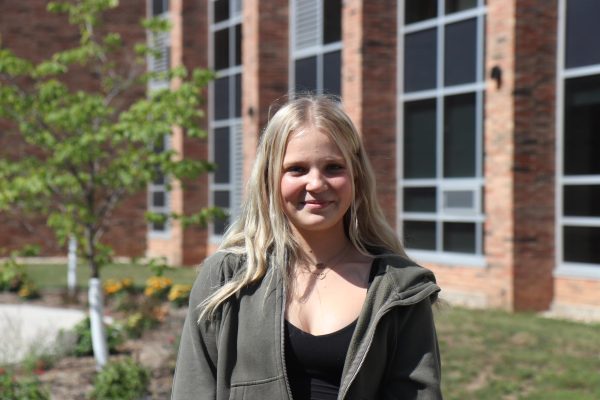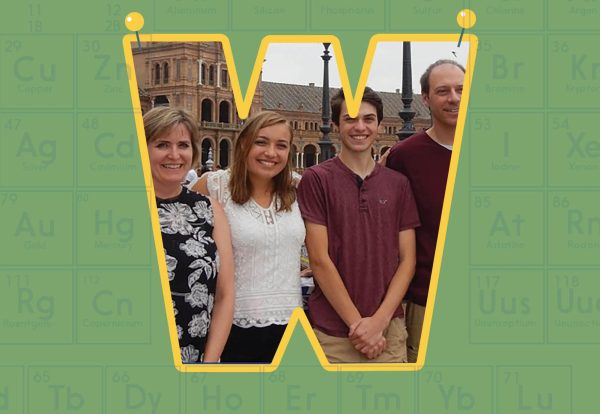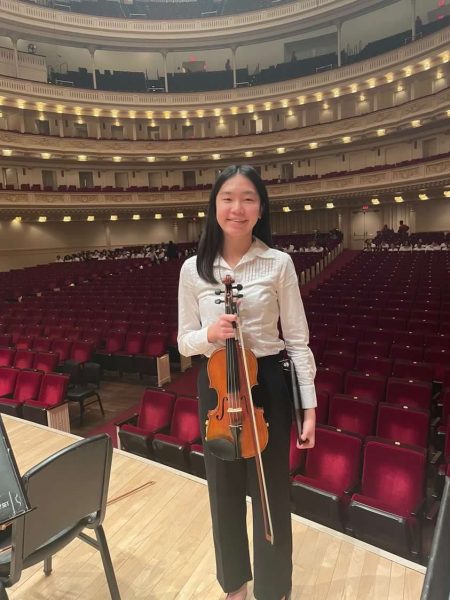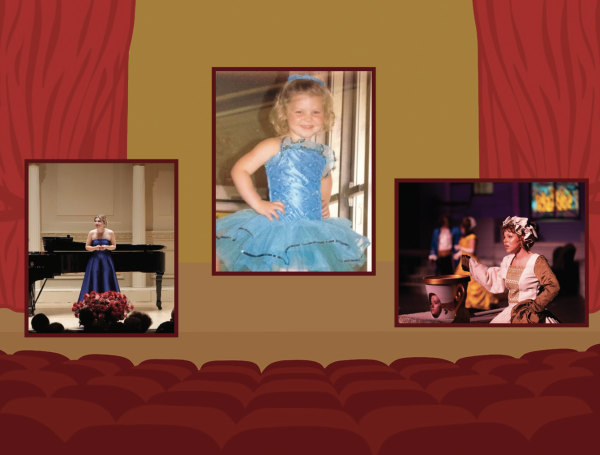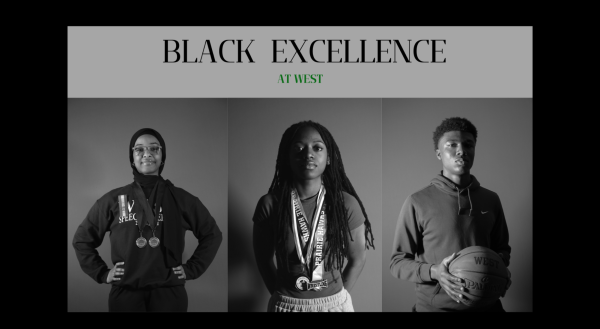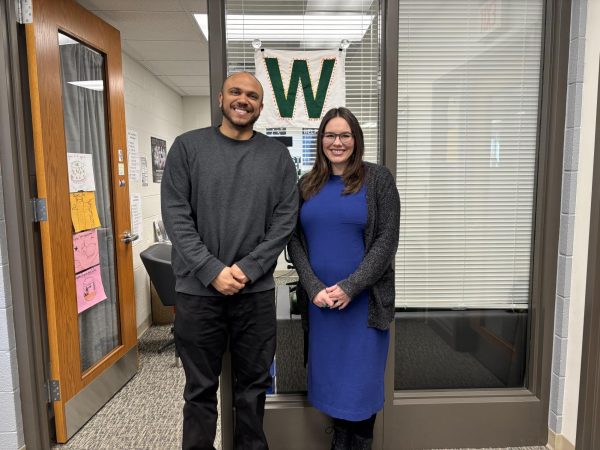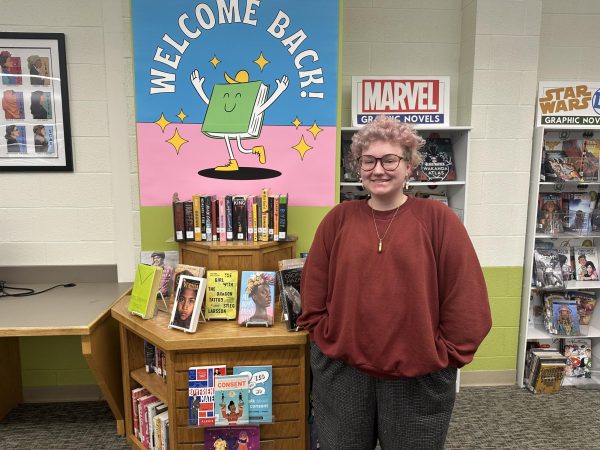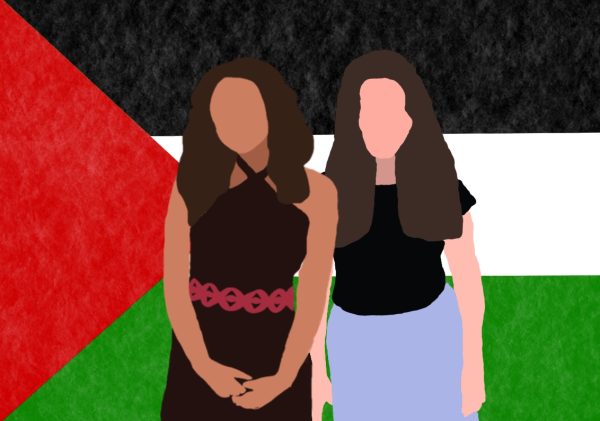A word is worth a thousand pictures
Through her spirit, actions and most importantly, her words, Khlood Saeed ’20 is bold.
April 26, 2018
Boldness is defined as the willingness to take risks and act innovatively. To step out of the box. To speak the unspeakable. To challenge the norm. With the help of slam poetry, Khlood Saeed ’20 has learned the true strength that comes with finding her voice.
For the past three years, Saeed has spoken out through her slam poetry. Because slam poetry is written for the sole purpose of performance, poets focus on their rhythm and emphasis to add drama. Emotion and meaning charge each word. No pause or accent is accidental. Even the movements of the body help tell the story.
Slam poets use their experiences and impressions of the world to deliver hard hitting performances. Saeed is no different. Her thought-provoking words convey strong messages of change and injustice. She writes about topics that hit close to home for her such as black rights and female rights. However, Saeed hasn’t always been this vocal.
“If you told me when I was a seventh grader that I’d be a poet and I’d perform in front of all these people I wouldn’t believe you because I was just so shy,” Saeed said.
Despite her timid nature, her seventh grade literacy teacher Anah Austin noticed her unique writing voice. Austin decided that Northwest Junior High’s slam poetry club would not only challenge Saeed but also allow her to thrive in a creative and accepting environment.
“I think we should all go after new experiences we wonder about. They help us grow and look at the world a different way. Khlood’s deep thinking and writing abilities let others see the world in a different way,” Austin said. “I wanted to expose other students to that.”
As Saeed grew more confident in her abilities, slam poetry became the outlet to channel her creativity.
“I feel that [Saeed] began to really find her voice in slam poetry and hear how much her voice mattered,” Austin said. “I hope she began to see that her voice had a major impact on others in a positive way.”
Now, Saeed isn’t afraid of tackling controversial or heavy topics. She draws inspiration from the media and current events. What makes her poetry unique are the angles she chooses. For example, when looking at the topic of police brutality, Saeed incorporates other issues that are important to her, like women’s rights. This process leads her to explore topics such as police brutality against females.
“I get the big picture and try to chop it up into little bits to see which part is most talked about and which isn’t,” Saeed said.
Though Saeed usually draws inspiration from others’ lives, as an African-American Muslim woman she also takes advantage of other people’s misconceptions of her culture.
¨This one time me and two of my friends were walking in the mall and this group of college students walked by and one of them said ‘Terrorists!’ loudly and my friends and I didn’t know what to do,” Saeed said. “I know with me being a black Muslim woman, there are going to be stereotypes. All I can do is prove them wrong.”
I know with me being a black Muslim woman, there are going to be stereotypes. All I can do is prove them wrong.
— Khlood Saeed
In Saeed’s poem “Dream” she conveys these challenges: “I’m sick and tired of being selected, suspected, corrected, Everything but interconnected.”
As a result of experiencing prejudice, she has strived to change these stereotypical perceptions by incorporating them into her poetry. Saeed is thankful to have a platform to share her voice and ideas because she’s aware others may not have this level of support. She writes for minority groups who don’t have the opportunity to share their stories. In her writing, the main message Saeed conveys is one of understanding and perspective.
“I want everyone to know that everyone is the same, but we all just have different stories to be told,” Saeed said. “If we sit down together and just listen to each other, we can learn so much.”
Saeed has had the opportunity to spread this idea around the community by performing her works at West High’s Unity Choir Concert and for organizations such as GirlUp and Youth Rising.
“Honestly, I love poetry. I would do it every single day if I could,” Saeed said, “It’s just an amazing feeling to put your words out there and have everybody contemplate what you’ve said—how your words can affect others.”
Saeed’s journey through writing has led her to grow in numerous ways. Saeed has become impactful, expressive and passionate, but most importantly she has learned the true effect she can make on the world around her.
“Poetry lets us play with the power of words. We get to learn how to manipulate language to make our point, whether we want to be funny or serious or outrageous,” Austin said. “It teaches us how to capture an audience and make them listen. Words are power. The more we learn how to use them in different formats for different audiences, the more power we have.”


